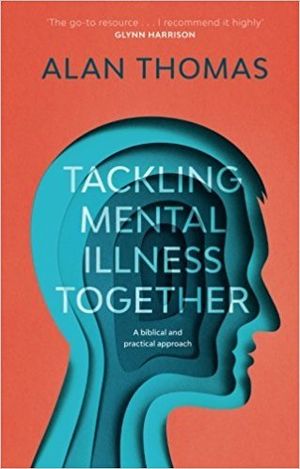Geoff Thomas, in his recommendation of this title, writes: ‘This is a unique book, coming from a qualified, experienced and deeply thoughtful man, dealing with a subject demanding much insight, compassion and also plain speaking’.
Alan Thomas is a consultant psychiatrist and church elder. He knows that churches find within their congregations all sorts of people and are often perplexed in dealing with them. ‘Is this man mentally ill? Perhaps he’s depressed? Should we tell him that he needs professional help? If he is receiving this, should we back off from trying to help him ourselves?’
This book gives clear biblical guidance on these matters. Mental disorders are on a spectrum, from the almost unnoticeable to the desperately serious. At the lower end of this, the author believes, churches can and should do much. Indeed, sometimes loving, prayerful care by Christians is all that the person needs. Christian leaders are well equipped to give such help. He wants us all to have confidence to do what we can.
Psychiatry defines a person’s abnormal behaviour as a disorder. Consequently, everyday stress can be deemed a mental disorder. The author contends that mental illness is a behavioural syndrome which is caused by something else: either physical damage in the brain or outside pressure. Stress may cause mental disorder.
Genetic factors plus life experience can tip anyone into stress-related illness, but we each have different tipping-points. Bad behaviour is not illness (although it may be caused by it). Depression has become a hugely inflated diagnosis.
‘Our society has allowed psychiatry to roll its tanks onto ministerial territory’ (p.32). Rather, ‘When someone becomes mentally ill and specialist input is needed from health services, the church should not withdraw. The input of Christians should be an important component of the care of the mentally ill’ (p.85). Church leaders and psychiatrists have complementary, overlapping roles.
Sometimes people in clinical trials get better even when they are only receiving the placebo. The reason being that they have contact with research nurses and receive from them kindness, understanding and sympathy. How much more should they receive this help from Christian believers!
One useful treatment for mental problems is Cognitive Behaviour Therapy (CBT). The patient is taught to think about their thoughts and actions and what they should change. Is not this what we should all practice all the time, even upon ourselves, applying what we know from the Scriptures (e.g. Psalm 42 and 43)?
The book is written from a Reformed perspective. It is readable and not without humour. It is full of case-studies demonstrating that the approaches which are outlined are indeed effective. A potential improvement would have been the inclusion of an index.
Every pastor should read this excellent book. It should also be in every church library so that it can be read by anyone who has contact with the mentally ill or the depressed.
John Palmer
Leigh










